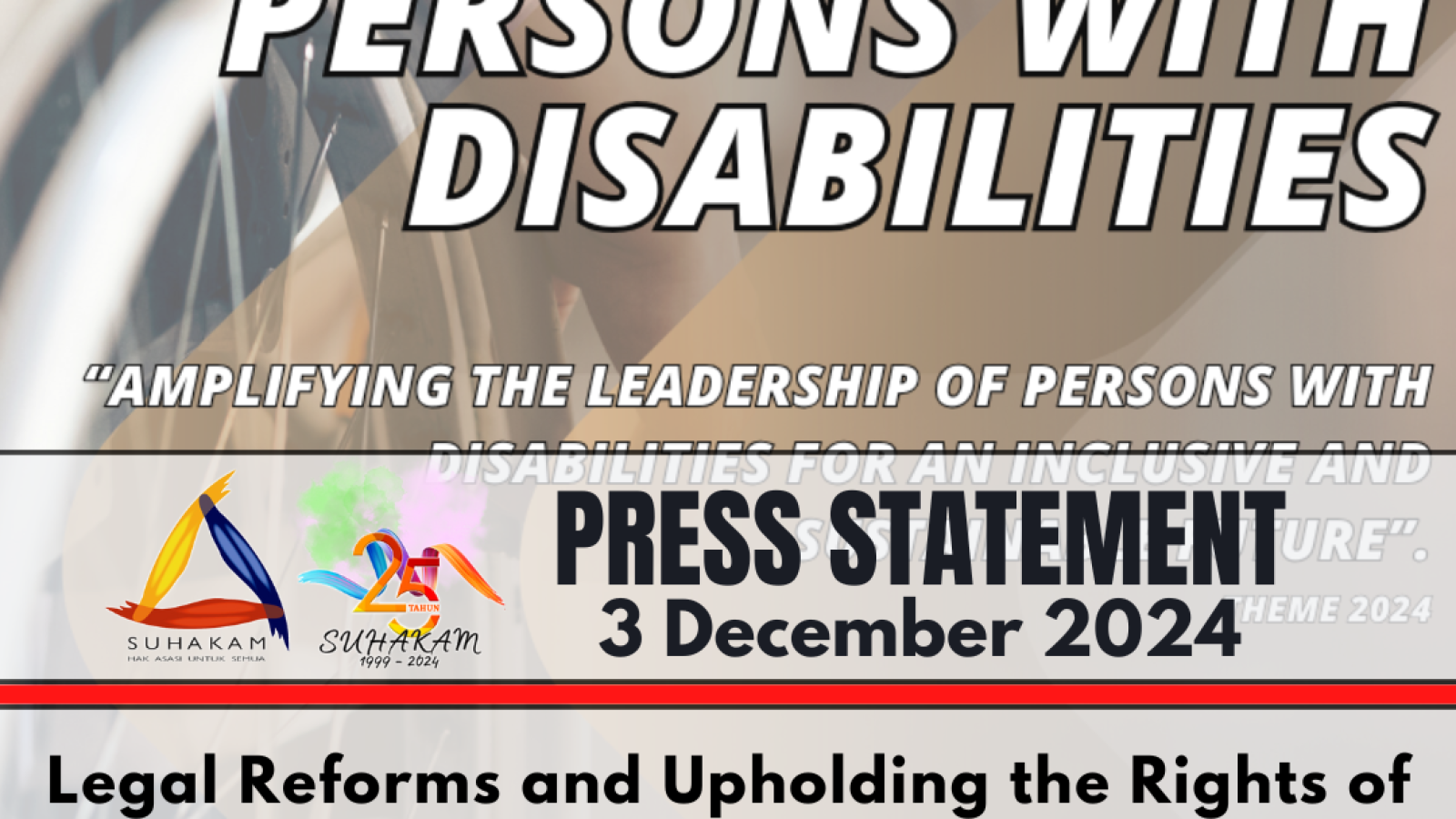KUALA LUMPUR (11 JANUARY 2025) – The Human Rights Commission of Malaysia (SUHAKAM) has taken note of the cancelled picket and we wish to clarify on the issues raised by the concerned staff.
Firstly, SUHAKAM has yet to receive any formal confirmation regarding the legality or legitimacy of the alleged union involved in this action. Without such clarity, it is difficult to ascertain the true representation or mandate of the alleged group behind the picket. As an independent human rights institution, SUHAKAM operates in alignment with the government regulations which includes human resource management, finance and operational systems, where SUHAKAM is subjected to regular audits in accordance with prevailing circulars and regulations issued by the government.
Recent concerns raised by some staff members regarding SUHAKAM’s restructuring exercise, specifically the proposed Flexi Grade system and related matters such as career progression, salary adjustments and performance evaluations, have prompted the need for clarification. SUHAKAM wishes to address these concerns in a transparent manner to prevent misunderstandings and to provide accurate information.
In 2024, SUHAKAM embarked on a significant restructuring initiative to enhance organizational efficiency and equity. A key component of this initiative was the introduction of the Flexi Grade system. This system aims to establish clear and fair pathways for career progression and remuneration for all staff members. Under this restructuring, the Deputy Secretaries’ Secretary (TSU, Grade 52) positions was upgraded aligned to Grade 54 to enable career progression for Principal Assistant Secretaries (KPSU, Grade 48) to advance their positions to Grade 52. This plan, which was initiated several years ago, has been meticulously deliberated in meetings such as the Jawatankuasa Pengukuhan Struktur Organisasi dan Perjawatan (JPSOP) and endorsed by the Commission.
It is important to emphasize that the restructuring and Flexi Grade system are designed to ensure equal opportunities across all grades and this decision underscores SUHAKAM’s commitment to equitable advancement and negates claims that staff members have been denied salary increases and that increments are only meant for a selected few. The restructuring process is ongoing, with the goal of establishing clear and transparent career pathways for all officers and staff, ensuring their contributions are recognized within the restructuring timeline.
In response to concerns on the performance evaluations, SUHAKAM is implementing a 360-degree assessment framework, starting with the TSU position in 2024. This phased approach allows for refinement before extending the system to all other grades. The aim is to create a fair and comprehensive evaluation mechanism that benefits all staff members.
SUHAKAM is also reviewing the Public Service Remuneration System (SSPA) to better understand its framework and to assess its potential applicability within SUHAKAM as an independent Commission. A briefing session by the Prime Minister’s Department (JPM) is already in the works and scheduled on 21 January 2025 to better understand the SSPA framework and its potential applicability to SUHAKAM. Should any recommendations be adopted, they may be implemented retrospectively backdated to December 2024. This consultative process reflects SUHAKAM’s commitment to ensuring decisions are inclusive and aligned with the interests of all parties.
SUHAKAM is dedicated to engaging in constructive dialogues with all relevant stakeholders to ensure the best outcomes for both the organization and our staff. SUHAKAM remains committed to ensuring that any restructuring or internal changes within the organization are handled with full transparency, fairness and in accordance with applicable laws and regulations.
Our goal is to continue upholding the principles of human rights, including the right to fair labour practices, whilst while ensuring that SUHAKAM operates with integrity and efficiency in serving the public. We are confident that an amicable resolution will be reached through open dialogue and mutual understanding. We appreciate the public’s understanding as we work through these matters internally.
-END-
The Human Rights Commission of Malaysia (SUHAKAM)
Date: 11 January 2025











